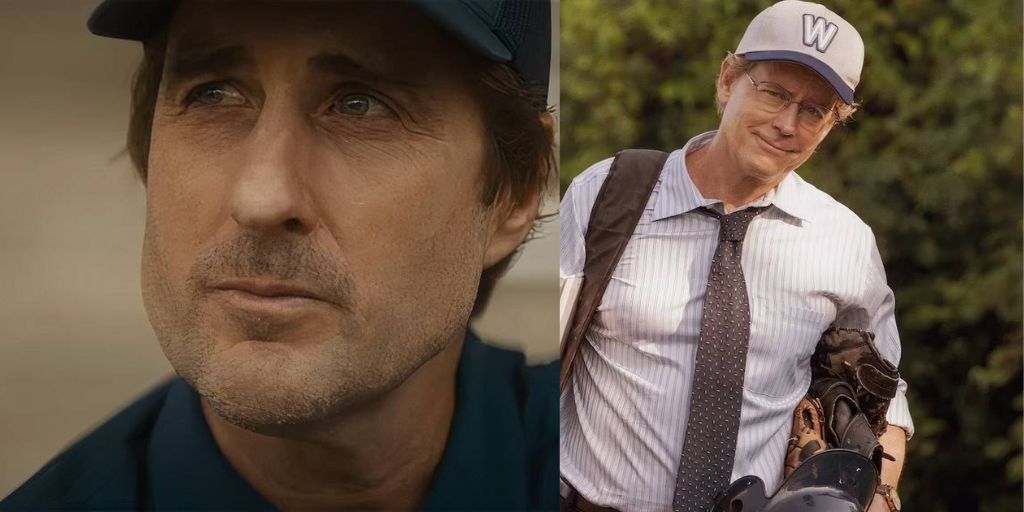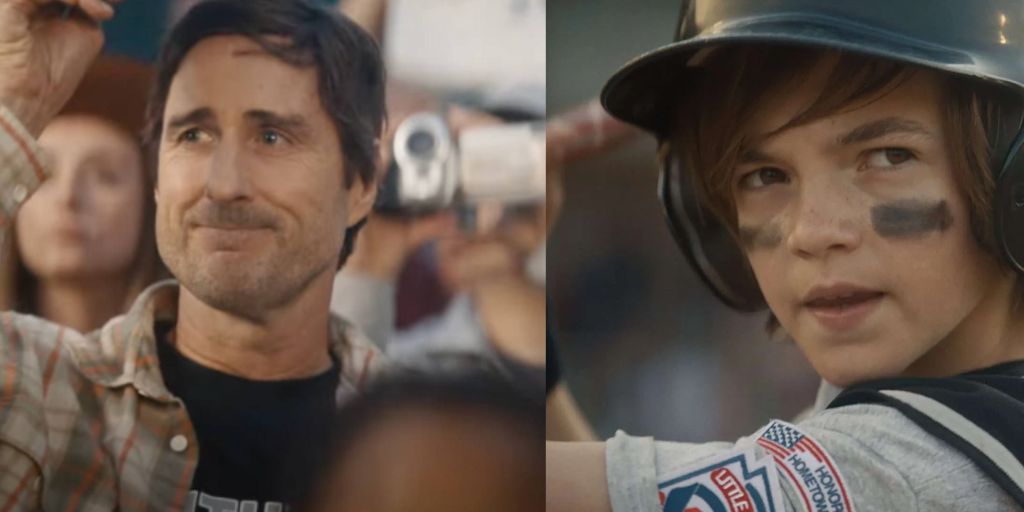Ty Roberts’ sports drama, You Gotta Believe, tells an inspiring story but often sticks too closely to old formulas. The movie is based on a true story and will surely bring tears to viewers’ eyes. However, Lane Garrison’s screenplay sometimes feels overly simplistic and cheesy.
The film focuses on Fort Worth’s Westside All-Stars, who surprised everyone in 2002 by dedicating their amazing season to Robert Ratliff’s father, Bobby, who is terminally ill. It highlights themes of tragedy, hope, and the idealized rescue that sports can provide.
Still, You Gotta Believe struggles to move beyond a surface-level emotional experience. Roberts’ direction, especially during baseball scenes, jumps between distracting camera techniques, which only emphasizes the players’ struggles on the field.
What Is You Gotta Believe About?
Luke Wilson plays Bobby Ratliff, a caring father who learns he has an advanced brain tumor just after his son’s Little League team finishes in last place.
At the same time, Bobby’s assistant coach and close friend, Jon Kelly (played by Greg Kinnear), gets the chance to have their struggling team represent Fort Worth in the Little League World Series.
Bobby loves watching his son Robert (Michael Cash) play baseball, so Jon accepts the challenge and starts training his misfit players for a shot at Williamsport. The odds are stacked against them, but if Bobby fights for his life, his team is determined to fight for victory.
Real-life sports moments, like the Miracle on Ice and Yordan Alvarez’s home run in the 2022 ALDS, show that true sports stories can be just as dramatic as scripted ones. You Gotta Believe provides a powerful example of this truth.
Bobby Ratliff’s story of support from the stands, even while battling melanoma, adds to the film’s emotional weight. Roberts and Garrison capture this remarkable spirit in dramatic scenes, honoring the Ratliff family and Fort Worth’s older players.
However, the film often feels like just another emotional Hallmark movie, following predictable patterns in pacing, tone, and themes, making it seem almost formulaic in its attempts to evoke tears.
Despite its shortcomings, You Gotta Believe does show moments of genuine family drama, presenting a softer, comforting view of death. Cash and his young co-stars bring a playful energy, joking about crushes and playing cards.
Roberts’ vision is very clean and sweet, especially in scenes where Jon’s wife, Kathy (Molly Parker), cheers him up by pushing him into their pool, or when Bobby’s wife, Patti (Sarah Gadon), stands strong for their family.
The dialogue sometimes sounds like it was written by adults trying to remember childhood, with lines like, “Your pitcher throws like a string bean flickin’ a booger.” While some of these corny jokes earn laughs, the film often walks a fine line between light-hearted fun and heavy themes of grief.
You Gotta Believe Is Too Cheesy For Its Own Good
Unfortunately, You Gotta Believe struggles to balance its themes of championship dreams with serious trauma. The film quickly dives into Bobby’s diagnosis and cancer battle, which can feel exploitative. The baseball scenes feel awkward, with actors swinging at unrealistic pitches and displaying poor batting form.
The film uses distracting camera techniques that take away from what should be crucial moments. For example, a musical montage where characters sing the Rawhide theme song (rollin’, rollin’, rollin’) loses its charm once you realize the movie rushed through important games.
The film often speeds through the team’s successes only to hit the audience with another heavy reminder of cancer, revealing a flaw in its structure.
Wilson’s portrayal of Bobby evokes sympathy and shows his courageous spirit, but the material itself often overdoes it. Much of You Gotta Believe falls into this trap. While Wilson, Kinnear, Parker, and Gadon deliver natural performances, the film includes absurd moments meant to amplify emotions that feel forced.
Roberts struggles with overly sweet storytelling that can feel overwhelming, leading to predictable emotional scenes. Other films in this genre, like Hardball or Remember the Titans, manage to create genuine feelings of sadness and determination.
In contrast, You Gotta Believe feels more like a reenactment than a heartfelt retelling. It’s as if the characters watch a film within the film, shedding tears into their tissues.
You Gotta Believe received funding for good reasons, and the Ratliffs now have a cinematic tribute to cherish. Stories like this are essential and deserve to be shared, but they are not immune to criticism.
Roberts and Garrison’s execution leaves much to be desired, making viewers wish for a well-crafted ESPN 30/30 documentary on Bobby’s legacy.
It is one of those films that tries hard to make viewers cry, but it takes a special approach to truly connect with the audience while they wipe their tears.
You Gotta Believe tells a legendary sports story but does so in a way that feels stiff and unfocused, preventing it from moving beyond the minor leagues.

You Gotta Believe is an inspirational sports drama directed by Ty Roberts, based on the true story of Bobby Ratliff and his son’s Little League team.
After Bobby (Luke Wilson) is diagnosed with a brain tumor, his friend and assistant coach, Jon Kelly (Greg Kinnear), trains the struggling team to compete in the Little League World Series.
The film shows themes of hope, family, and perseverance, showcasing the team’s dedication to Bobby during his illness.
Despite its heartfelt intentions, the film often falls into clichéd storytelling and lacks the authenticity that would resonate more deeply with viewers.
You Gotta Believe is now available for rent or purchase on VOD.





